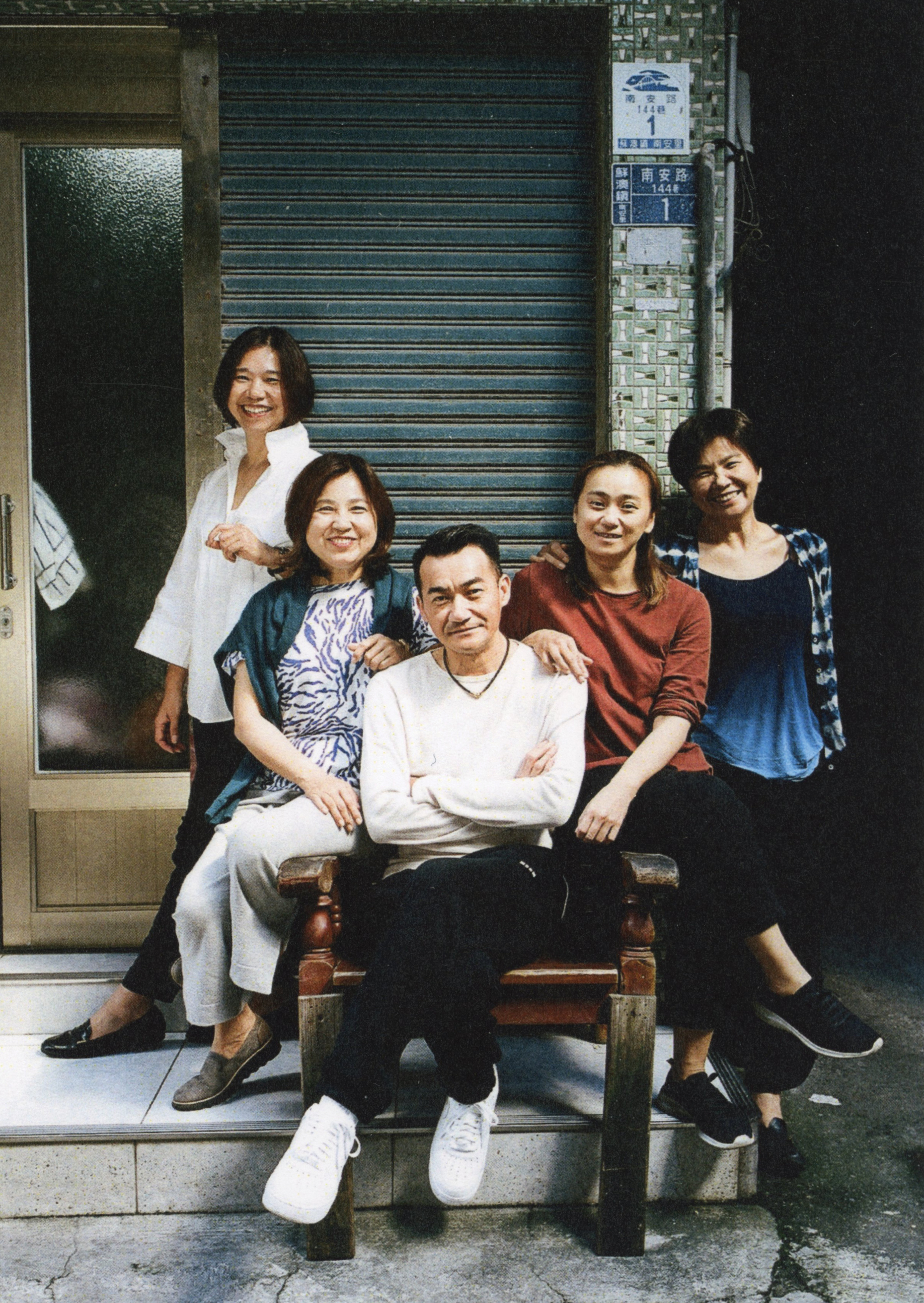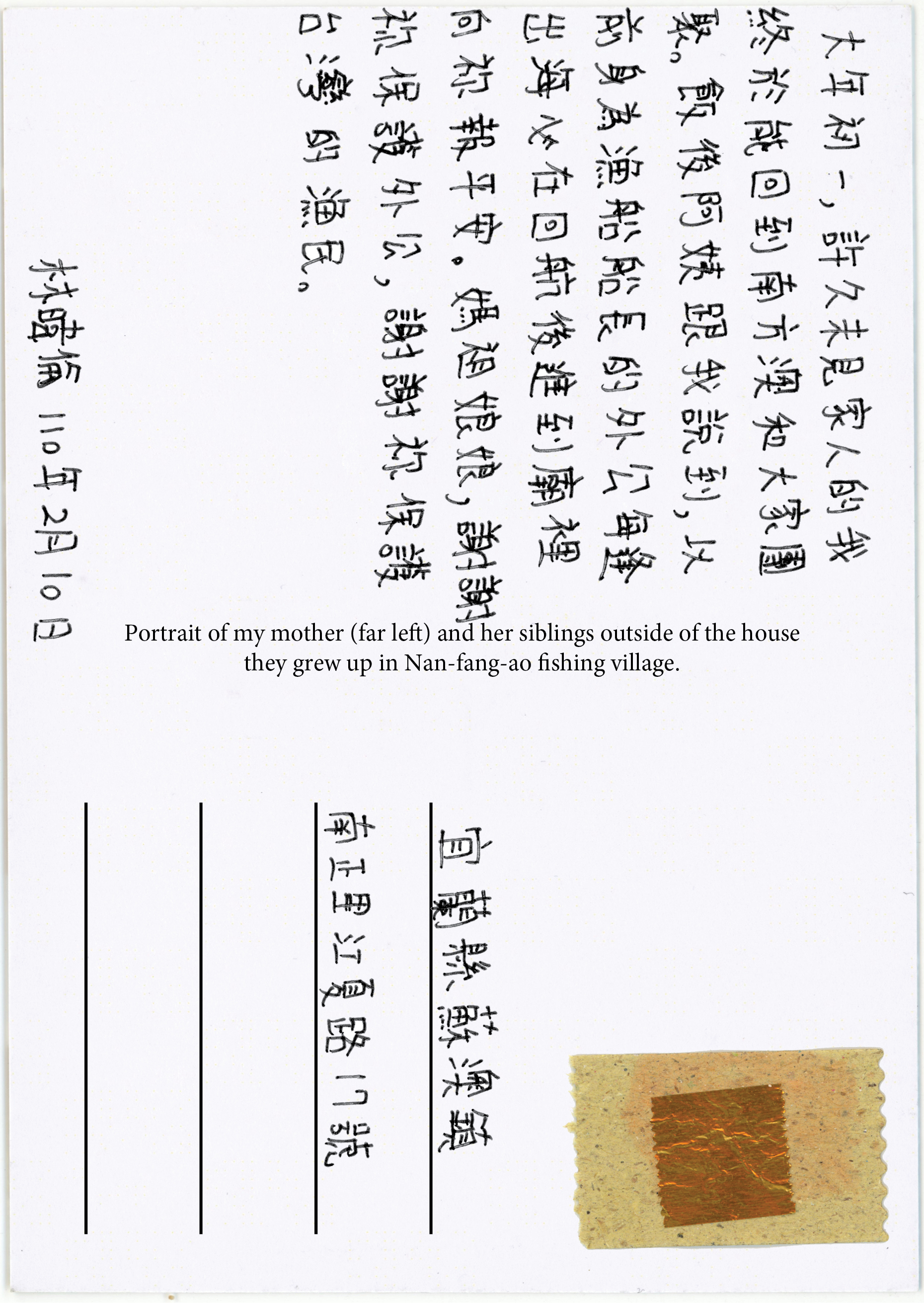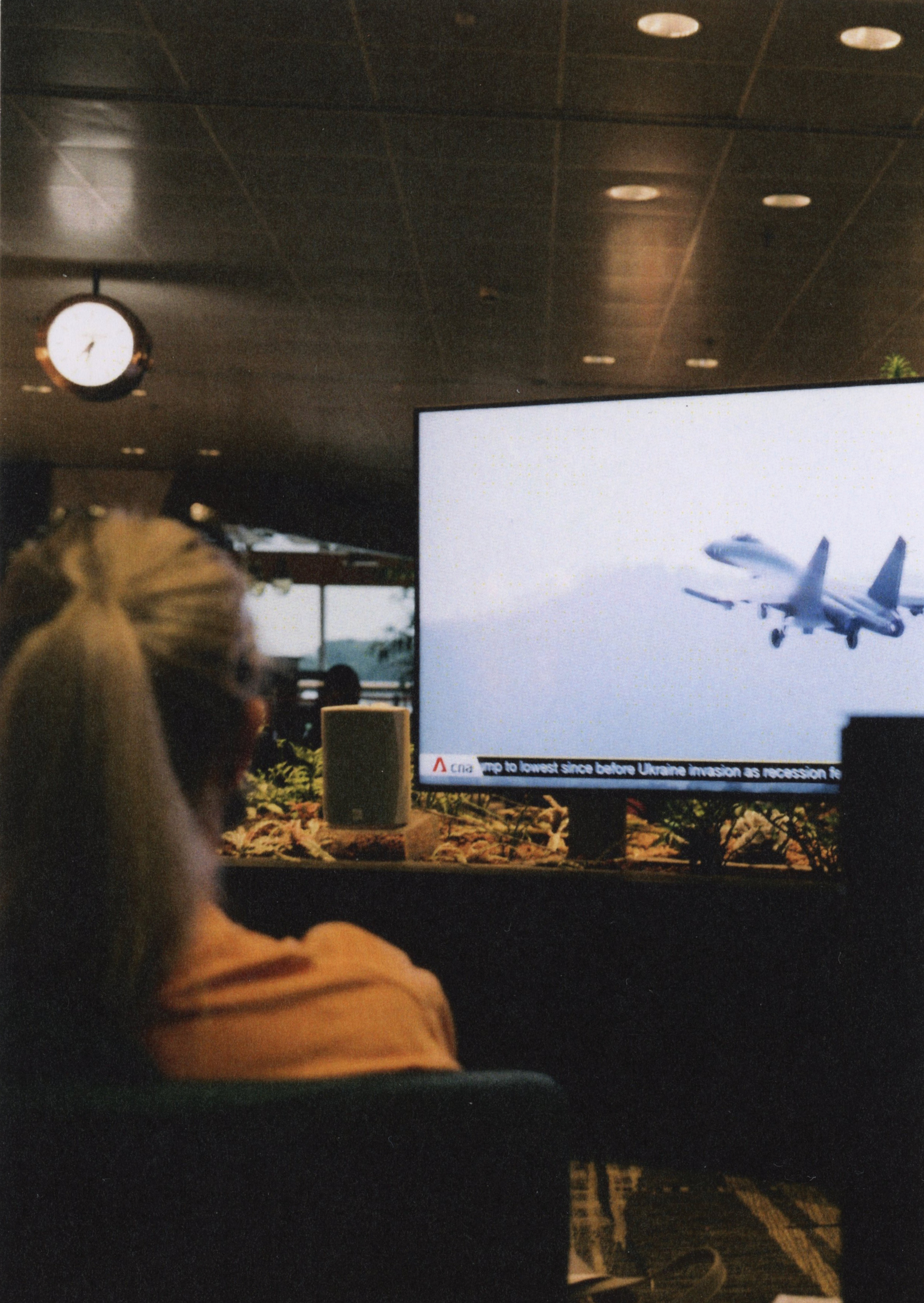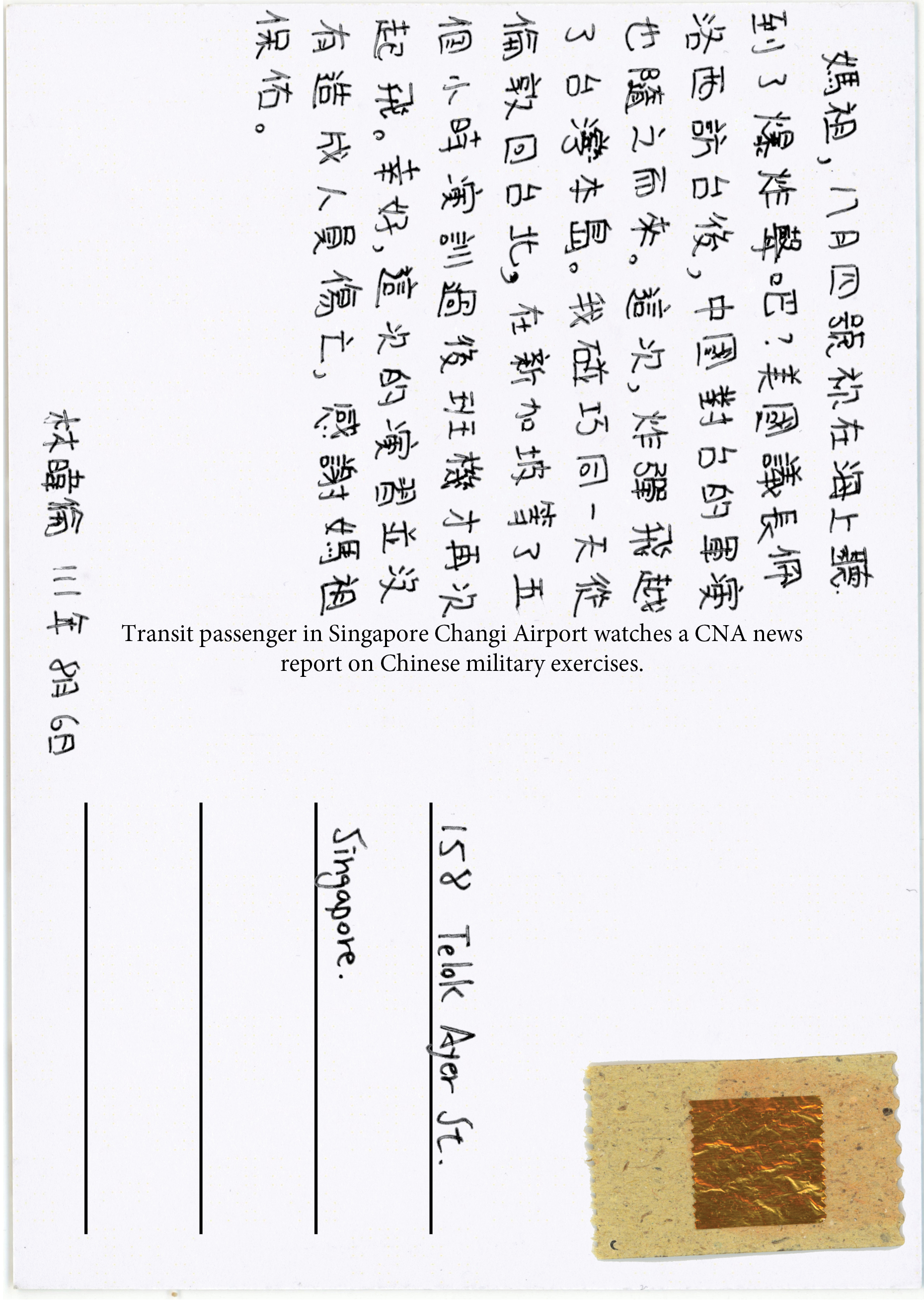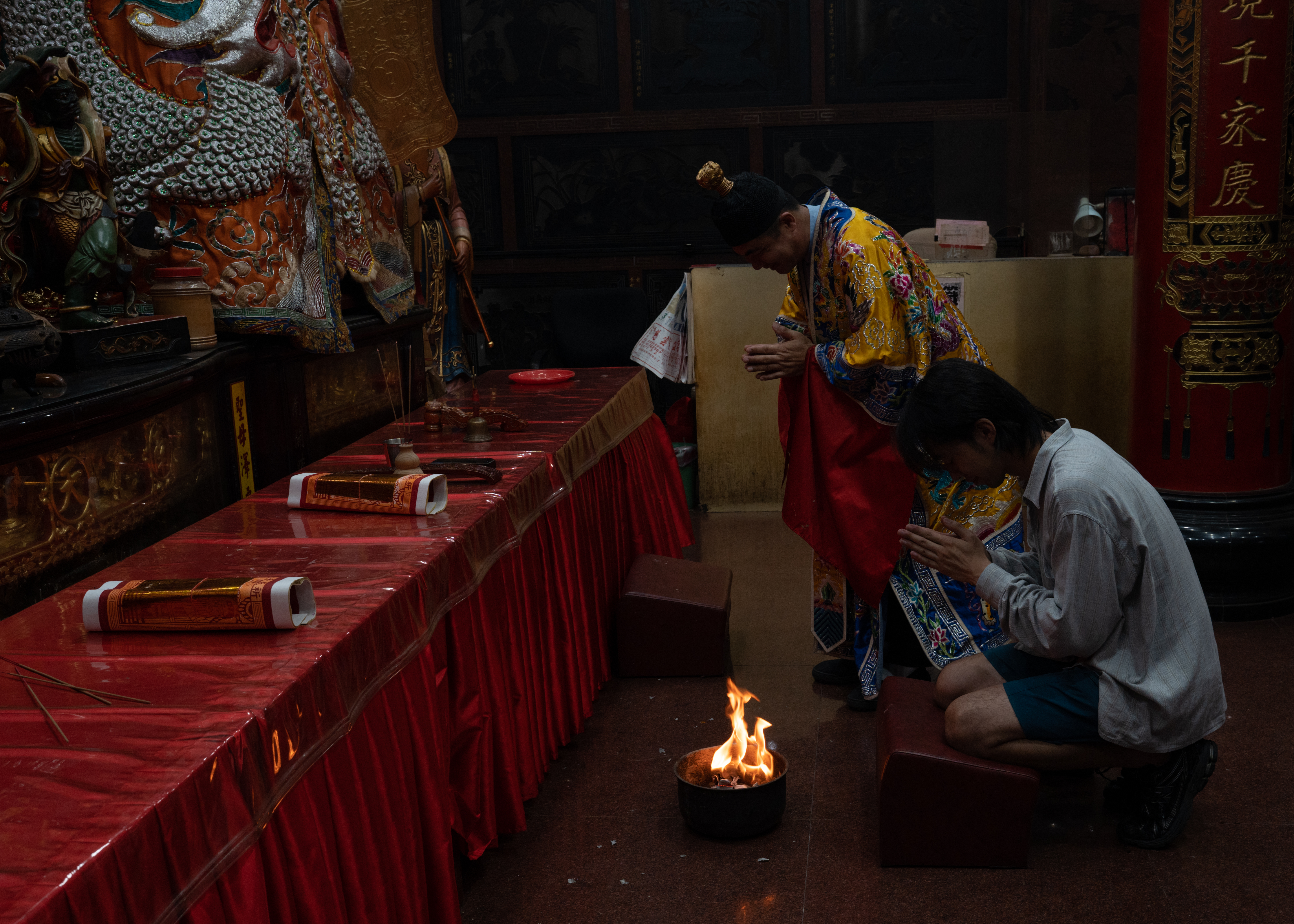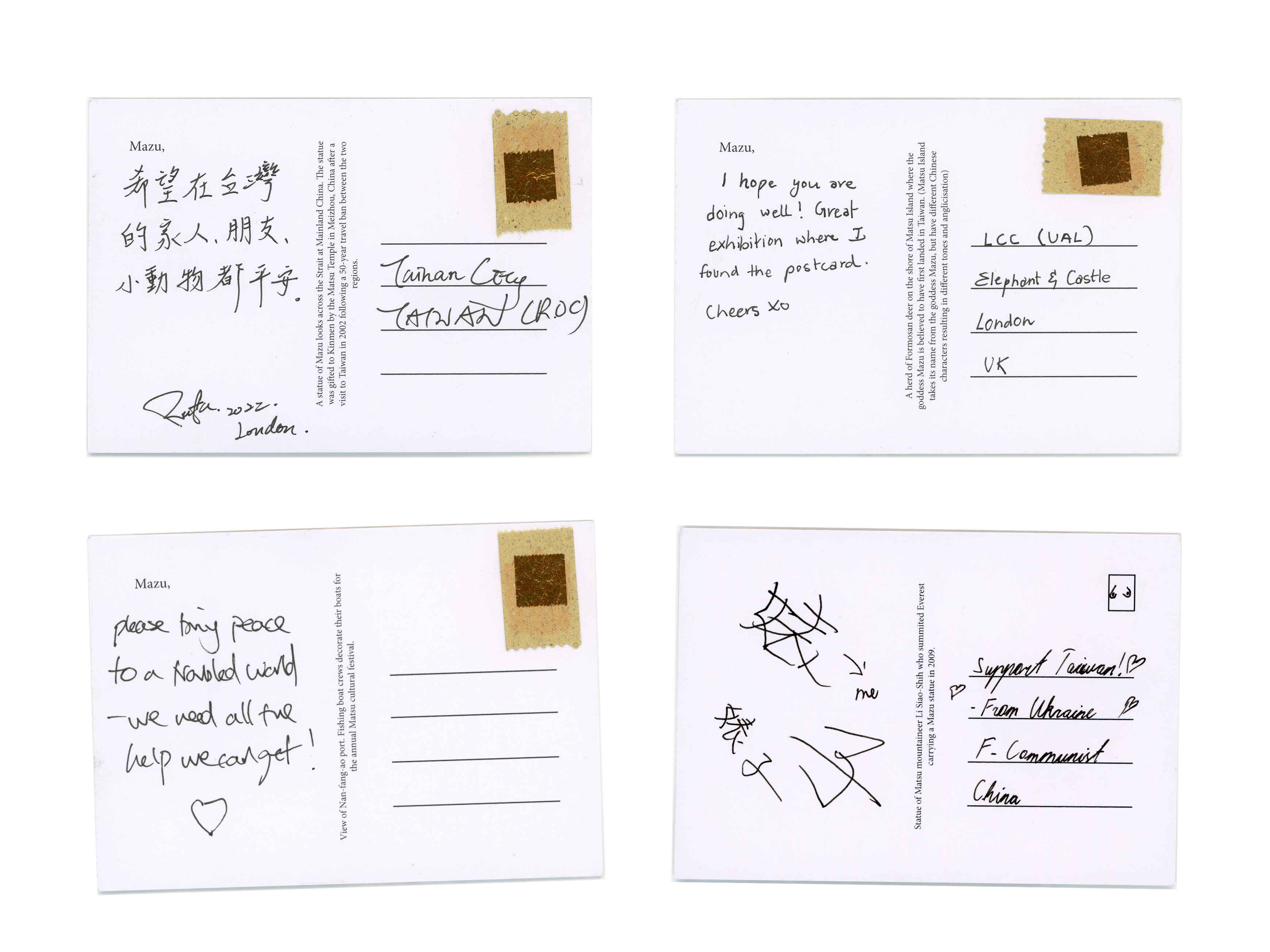"Mazu," presents a series of postcards written to Mazu, the sea goddess who arrived Taiwan from the Chinese mainland three centuries ago. Today, the Taiwanese see her not only as a protector of the island's fishermen and sailors as a guardian deity of the entire island of Taiwan. During periods of geopolitical instability, most recently during prominent US politician Nancy Pelosi's visit to Taipei, the postcards asked for her protection.
The photographs printed on the postcards document my personal investigation into the impact of Pelosi’s visit, not only on the cross-strait relationship but also on myself and other Taiwanese. I explore my anxieties about the safety of my family and friends amidst unprecedented Chinese military activity around Taiwan. It also reflects on the mental and physical toll the crisis has had on soldiers and the economic sanctions levied by Beijing against Taiwan’s fishing industry as punishment for the governing party in Taiwan’s pro-independent slant.
The project also uses Mazu as a symbol to address the complicated identity dilemma Taiwanese people face: are we "Taiwanese" or "Chinese in Taiwan"? Seventy years after the Chinese Kuomintang government's retreat to Taiwan in 1949, this question still plays a vital role in Taiwanese civil society. Mazu is an important religious figure in China and Taiwan and Chinese state media since the 1990s has been using her to emphasise shared cultural roots to promote unity across the Taiwan Strait.
Alongside the postcards, the piece also includes an installation of a postbox-style incinerator akin to those used in Taoist ceremonies. The audience is invited to pen a postcard to Mazu with their response to the ongoing Taiwan Strait crisis. In line with the Taoist tradition of burning ceremonial money as offerings to gods, the postcards collected will then be set alight in the postbox and thus transported to Mazu.
“Mazu,” is the winner of the <Landskrona Foto & Breadfield Dummy Award 2024> and <Belsfast Photo Festival Photo-Book Prize 2025>. It is also shortlisted for the <Dummy Award 2024 by The PhotoBook Museum> and showcased in <Singapre International Photography Festival.> Now in the collection of the Maison Européenne de la Photographie <MEP>.
Copies available at <Breadfield> and <Witty books>
The photographs printed on the postcards document my personal investigation into the impact of Pelosi’s visit, not only on the cross-strait relationship but also on myself and other Taiwanese. I explore my anxieties about the safety of my family and friends amidst unprecedented Chinese military activity around Taiwan. It also reflects on the mental and physical toll the crisis has had on soldiers and the economic sanctions levied by Beijing against Taiwan’s fishing industry as punishment for the governing party in Taiwan’s pro-independent slant.
The project also uses Mazu as a symbol to address the complicated identity dilemma Taiwanese people face: are we "Taiwanese" or "Chinese in Taiwan"? Seventy years after the Chinese Kuomintang government's retreat to Taiwan in 1949, this question still plays a vital role in Taiwanese civil society. Mazu is an important religious figure in China and Taiwan and Chinese state media since the 1990s has been using her to emphasise shared cultural roots to promote unity across the Taiwan Strait.
Alongside the postcards, the piece also includes an installation of a postbox-style incinerator akin to those used in Taoist ceremonies. The audience is invited to pen a postcard to Mazu with their response to the ongoing Taiwan Strait crisis. In line with the Taoist tradition of burning ceremonial money as offerings to gods, the postcards collected will then be set alight in the postbox and thus transported to Mazu.
“Mazu,” is the winner of the <Landskrona Foto & Breadfield Dummy Award 2024> and <Belsfast Photo Festival Photo-Book Prize 2025>. It is also shortlisted for the <Dummy Award 2024 by The PhotoBook Museum> and showcased in <Singapre International Photography Festival.> Now in the collection of the Maison Européenne de la Photographie <MEP>.
Copies available at <Breadfield> and <Witty books>

